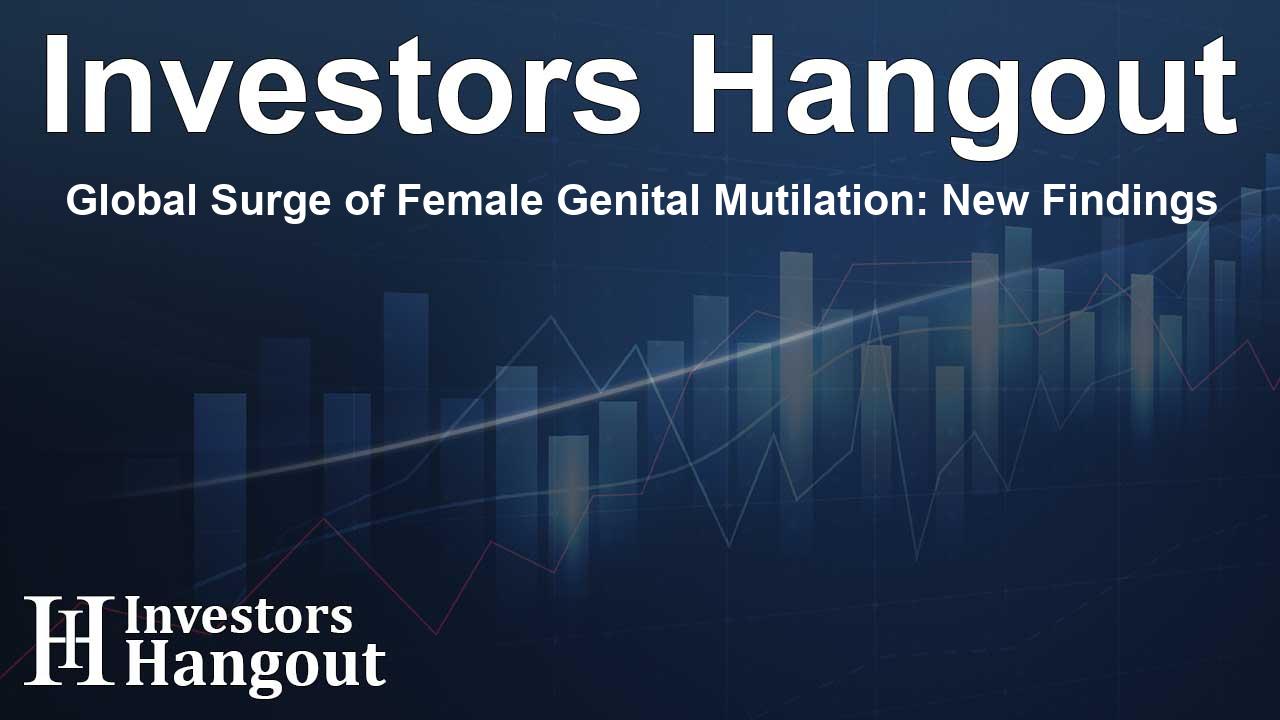Global Surge of Female Genital Mutilation: New Findings

New Insights into Female Genital Mutilation Patterns
A recent report has revealed that female genital mutilation/cutting (FGM/C) has been identified in 94 countries, shedding light on the widespread nature of this harmful practice. As shocking as it may be, the number of girls and women affected by or at risk of FGM/C has exceeded previous estimates. This extensive research calls for urgent attention, as many governments remain hesitant to take decisive action, especially in regions where FGM/C is less publicly recognized. Weak legal frameworks, inadequate data collection, low levels of awareness, and a lack of funds pose further challenges in addressing this crucial human rights issue.
Expanded Research on FGM/C
The collaborative effort by well-known organizations has compiled significant new evidence regarding the nature of FGM/C. The report, which includes testimonials from survivors and data from local surveys, brings to light the pressing need for more comprehensive protection and intervention programs aimed at eradicating FGM/C globally.
Growing Awareness and Need for Action
Recent findings underscore that communities in Azerbaijan, Cambodia, and Vietnam, among others, have been implicated in the practice of FGM/C. Countries in Latin America and Asia also require further investigation, as evidence suggests that indigenous groups may be practicing FGM/C as well.
Divya Srinivasan from Equality Now emphasizes the severity of the situation by stating, "Mounting evidence clearly shows that FGM/C is a worldwide issue. Governments must recognize the problem and strengthen their commitment to eradicating it through appropriate funding and policy changes, particularly in overlooked regions that are victims of this atrocity."
The Financial Gap in Addressing FGM/C
A 2024 UNICEF report estimated that over 230 million girls and women have experienced FGM/C, with significant populations in various regions. However, detailed data on prevalence remains scarce for many countries. The reality is that funding allocated to combat FGM/C is disproportionately concentrated in African nations while neglecting the urgent needs in Asia, Latin America, and the Middle East. This discrepancy illustrates a critical gap in global responses and resource allocation.
Importance of Solid Data
Robust data collection is vital for effective intervention. Reliable statistics not only help advocate for funding but are also fundamental for informed policymaking, ensuring that no community is overlooked. Advocates urge that data-driven strategies are essential for crafting laws that combat FGM/C.
International Laws and Progress
FGM/C is recognized as a violation of human rights. While significant progress has been made, with more countries implementing anti-FGM/C laws since 2020, there is still a considerable number of nations where no such legal framework exists. Presently, only 58 out of the 94 countries where FGM/C has been identified possess laws against it.
Recent Legislative Changes
On a promising note, several nations such as Sudan, Indonesia, and the United States have enacted laws specifically criminalizing the practice of FGM/C. Nevertheless, efforts are still inadequately supported by funding and societal awareness.
The Medicalization of FGM/C
Another alarming trend is the medicalization of FGM/C, where health professionals perform the procedure, which further misrepresents its implications and puts more girls at risk. Reports have indicated a troubling rise in this practice, particularly in countries like Egypt and Indonesia, compelling advocates to engage in critical conversations around this issue.
Feminist Movements and Activism Against FGM/C
Despite the hurdles, significant activism continues to be a powerful force in pushing for legal changes. Grassroots movements are playing an essential role in raising awareness and addressing the social norms that perpetuate FGM/C.
Supporting Survivors and Their Advocacy
To move forward, it is crucial to prioritize the voices of women and girls affected by FGM/C. Survivors deserve access to essential services that cater to their specific needs, promoting their well-being and reinforcing their agency in societal discourse regarding FGM/C.
The U.S. End FGM/C Network's Caitlin LeMay highlights the importance of survivor stories in rallying global attention to this critical issue. "Their courage has been the heartbeat of this movement, fueling international calls for change," she stated.
Frequently Asked Questions
What is Female Genital Mutilation/Cutting (FGM/C)?
FGM/C involves the partial or complete removal of external female genitalia for non-medical reasons and is recognized as a serious human rights violation.
How many countries practice FGM/C?
Recent reports indicate that FGM/C is reported in 94 countries, highlighting the widespread nature of this practice.
What challenges exist in combating FGM/C?
Challenges include lack of sufficient funding, weak legal frameworks, low public awareness, and difficulty in collecting accurate data on the practice.
Why is data important in tackling FGM/C?
Accurate data is essential for advocacy, development of effective policies, providing resources for prevention efforts, and combating the practice effectively.
What steps are being taken to end FGM/C?
Global efforts are being made to implement strong legal frameworks, increase awareness, and support survivors and local activism to eradicate FGM/C by the year 2030.
About The Author
Contact Thomas Cooper privately here. Or send an email with ATTN: Thomas Cooper as the subject to contact@investorshangout.com.
About Investors Hangout
Investors Hangout is a leading online stock forum for financial discussion and learning, offering a wide range of free tools and resources. It draws in traders of all levels, who exchange market knowledge, investigate trading tactics, and keep an eye on industry developments in real time. Featuring financial articles, stock message boards, quotes, charts, company profiles, and live news updates. Through cooperative learning and a wealth of informational resources, it helps users from novices creating their first portfolios to experts honing their techniques. Join Investors Hangout today: https://investorshangout.com/
The content of this article is based on factual, publicly available information and does not represent legal, financial, or investment advice. Investors Hangout does not offer financial advice, and the author is not a licensed financial advisor. Consult a qualified advisor before making any financial or investment decisions based on this article. This article should not be considered advice to purchase, sell, or hold any securities or other investments. If any of the material provided here is inaccurate, please contact us for corrections.
